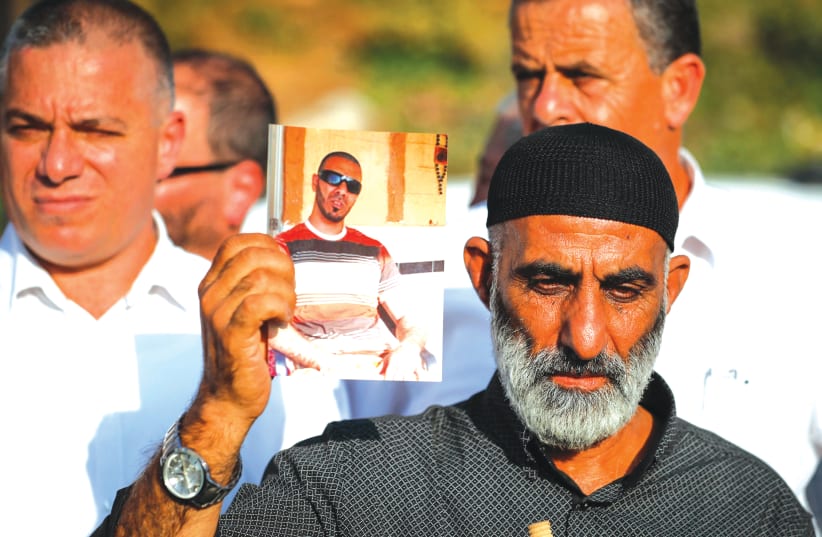According to an Abraham Initiatives count, 18 Arabs were killed in crime-related incidents in the first five weeks of 2021. This means that three to four Arab-Israeli citizens are murdered every week, and indeed, 113 Arab-Israeli citizens were killed in 2020.
According to law enforcement agencies, tens of thousands of weapons are held illegally by Arab residents, including assault rifles, grenades and rocket launchers stolen from military bases, among others.
This should trouble each and every Israeli citizen for two primary reasons: first, as a society, we should refuse to accept the idea that if you are born to a specific group, there is a greater chance you will get killed while walking down a street, or even while sitting in your kitchen drinking tea.
The second reason is that all these weapons that are aimed at people in Arab towns today could easily be directed at any other group in the future.
There’s almost no Arab town, village, or neighborhood that is not affected by this plague.
Last week, a group of Arab mayors – headed by Umm al-Fahm Mayor Samir Mahamid – said that if a comprehensive plan to combat this phenomenon is not promoted by the government, they will resign.
In a conversation with The Jerusalem Post’s Udi Shaham, Mahamid said that he feels helpless when he sees his residents cry for help.
Mahamid said he attended a protest calling for greater police intervention, and met there with the sisters and cousins of a young man who was murdered. “They slammed me for doing nothing, and I had no answer for them.” He criticized the government saying “whoever has the tools to fight these violent acts is not using them. The government needs to set a new policy: an operative plan.”
Prime Minister Benjamin Netanyahu did present an offer earlier this week. In a news conference on Wednesday, he introduced a new “commissioner,” Aharon Franco, a retired senior police officer and former head of the Israel Prisons Service who has been charged with fighting the violence. But experience over the past year has shown that “special commissioners” are mostly installed to serve as a punching bag for politicians. If they did manage to achieve anything, the credit was soon taken by the person who appointed them.
The current situation does not require a “commissioner.” That is just a Band-Aid on a gunshot wound. The lack of land in Arab towns, the absence of proper construction plans, not to mention the poor infrastructure, creates a situation in which it is almost impossible to receive a building permit.
This leads to one of two scenarios for a young Arab couple looking to buy a new home: it’s either build illegally and take the risk that the new house will be demolished, or try their luck and look for a house in a Jewish town.
The fact that the banks refuse to loan money for illegal construction has made for a thriving “gray market” in the Arab sector – and the illegal weapons are the protector of the Arab gray market.
Their abundance also causes “normative citizens” to maintain a weapon, because they simply never know where they might be hit.
Resolving this crisis requires a thorough, comprehensive intra-ministerial plan that will take care of all aspects, from expanding Arab towns’ jurisdiction and authorizing comprehensive construction plans to confiscating illegal weapons and clearing the “mafiosos” off the streets.
The election next month does not bode well for advancing such a plan, and the only reason the prime minister suddenly acknowledged this phenomenon is because he is focused on garnering the Arab vote as he seeks to break the two-year political deadlock. But the Arab parties are most likely to maintain their anti-coalition stance, and will not be in a position to take on key decision-making roles.
The new plan offered by Netanyahu is not sufficient. We can only hope that an effective plan will be put forward before things get even worse.
